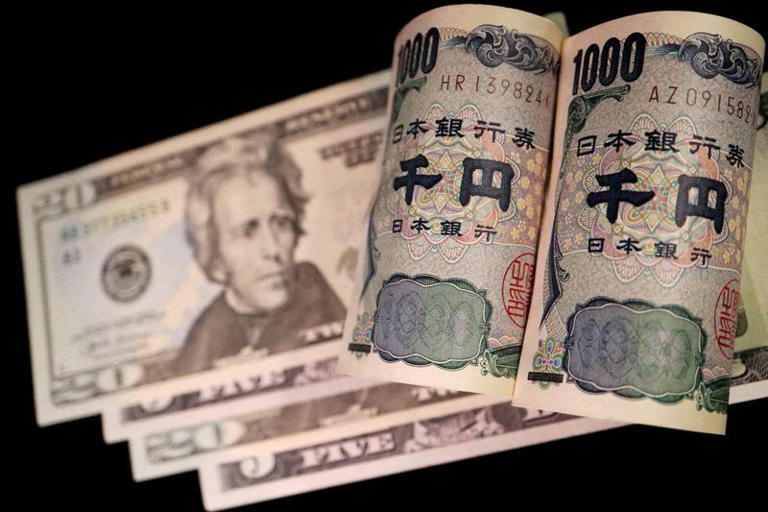On Monday, the currency markets witnessed a sudden surge in the value of the yen against the dollar, prompting speculation of intervention by Japanese authorities to bolster the currency. Traders observed a sharp decline in the dollar’s value, which plummeted to 156.55 yen from its earlier high of 160.245 yen. Market sources indicated that Japanese banks were actively involved in selling dollars in exchange for yen, suggesting coordinated efforts to strengthen the Japanese currency, which has been hovering near its lowest levels in over three decades.
This intervention comes at a time of heightened concern among traders, who have been closely monitoring Tokyo’s response to the yen’s persistent weakness. Despite Japan’s unprecedented shift away from negative interest rates, the yen has continued its downward trajectory against the dollar, depreciating by 11% since the beginning of the year. However, with Japan observing a holiday on Monday, the Ministry of Finance was not immediately available for comment on the reported currency intervention.
In a press conference following a recent meeting, Bank of Japan Governor Kazuo Ueda addressed the issue of currency rates, emphasizing that monetary policy does not explicitly target exchange rates. However, he acknowledged the potential economic impact of exchange-rate volatility, indicating a nuanced approach by Japanese policymakers in managing currency fluctuations while pursuing broader economic goals.
The Japanese government’s intervention in the currency market in 2022 highlights its proactive stance in addressing concerns about the yen’s value. On three occasions last year, Japan sold the dollar to acquire yen, coinciding with a period of decline in the yen’s value towards a 32-year low of 152 to the dollar. These interventions underscore Tokyo’s commitment to maintaining stability in the currency markets and mitigating excessive fluctuations.
Moreover, the recent agreement between the United States, Japan, and South Korea to “consult closely” on currency markets signals a collaborative effort to address concerns about exchange-rate stability. Tokyo has also intensified its rhetoric against unwarranted movements in the yen, emphasizing the importance of maintaining stability in exchange rates to support economic growth.
Beyond its relationship with the dollar, the yen has also experienced multi-year lows against other major currencies such as the euro, Australian dollar, and Chinese yuan. This broad-based decline reflects the complex economic dynamics facing Japan and underscores the challenges policymakers face in navigating currency fluctuations amidst global market uncertainties.
